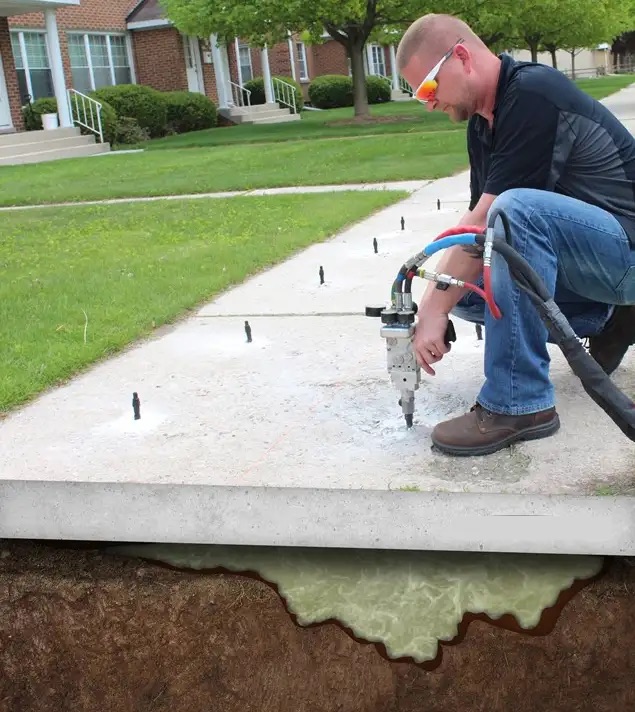Introduction
Owning a home is a significant investment, and maintaining its structural integrity is crucial to protecting that investment. One of the most critical yet often overlooked aspects of home maintenance is ensuring proper drainage around the property. Effective drainage systems are vital for preserving your home’s foundation, preventing costly repairs, and maintaining the overall health of the structure. This blog post explores why proper drainage is essential and how it plays a pivotal role in keeping your home’s foundation intact.
The Role of Drainage in Foundation Health
Preventing Water Accumulation
Water is one of the most destructive elements to a home’s foundation. When water accumulates around the foundation, it can seep into the soil, causing it to expand and contract with changing moisture levels. This process, known as soil heave, can exert tremendous pressure on the foundation walls, leading to cracks and structural damage. Proper drainage systems, such as gutters, downspouts, and grading, ensure that water is directed away from the foundation, preventing accumulation and subsequent damage.
Avoiding Soil Erosion
Soil erosion is another significant threat to a home’s foundation. When water is not adequately diverted away from the house, it can wash away the soil supporting the foundation. This erosion can create voids and uneven support, causing the foundation to settle unevenly. Over time, this can lead to cracks in the foundation, walls, and even the collapse of parts of the structure. Effective drainage helps maintain the soil’s integrity, ensuring that the foundation remains stable and well-supported.
Key Components of a Proper Drainage System
Gutters and Downspouts
Gutters and downspouts are the first line of defense against water damage. They collect rainwater from the roof and channel it away from the foundation. Ensuring that gutters are clean and free of debris is essential for their proper functioning. Downspouts should extend several feet away from the house to prevent water from pooling near the foundation.
Grading
The grading of the land around your home plays a crucial role in drainage. The ground should slope away from the foundation to direct water away from the house. A slope of about 6 inches for the first 10 feet away from the foundation is generally recommended. Proper grading prevents water from flowing toward the foundation and causing damage.
French Drains
French drains are an excellent solution for areas prone to water accumulation. These drains consist of a trench filled with gravel or rock containing a perforated pipe that redirects surface and groundwater away from the foundation. French drains are particularly useful in areas with high water tables or poor soil drainage.
Sump Pumps
In some cases, a sump pump may be necessary to manage water accumulation. Sump pumps are installed in the basement or crawl space and pump water out of the home to a safe distance away from the foundation. This is especially important in areas prone to heavy rainfall or flooding.
Consequences of Poor Drainage
Foundation Cracks and Shifting
Poor drainage can lead to severe foundation problems. When water is allowed to accumulate and infiltrate the soil, it can cause the foundation to crack or shift. These cracks can lead to uneven floors, misaligned doors and windows, and significant structural issues that are costly to repair. In extreme cases, poor drainage can even lead to the collapse of the foundation.
Mold and Mildew
Excess moisture around the foundation can also lead to mold and mildew growth. Mold and mildew thrive in damp environments and can quickly spread throughout the home. This not only compromises the structural integrity of the house but also poses serious health risks to the occupants. Proper drainage helps keep the foundation and the home’s interior dry, preventing mold and mildew growth.
Pest Infestations
Standing water and excess moisture attract pests such as termites, ants, and rodents. These pests can cause extensive damage to the foundation and the rest of the home. Termites, in particular, are notorious for their ability to chew through wood, weakening the structural integrity of the house. Effective drainage reduces the risk of pest infestations by eliminating their preferred habitats.
Long-Term Financial Benefits
Reduced Repair Costs
Investing in proper drainage can save homeowners significant amounts of money in the long run. Foundation repairs are among the most expensive home repairs, often costing tens of thousands of dollars. By ensuring proper drainage, homeowners can prevent the conditions that lead to foundation damage, thereby avoiding these costly repairs.
Increased Property Value
A well-maintained foundation contributes to the overall value of the property. Potential buyers are likely to pay more for a home with a solid, undamaged foundation. Proper drainage is an essential aspect of home maintenance that can increase the property’s marketability and value.
Conclusion
Proper drainage is not just about keeping water away from your home; it is about preserving the foundation and, by extension, the entire structure of the house. From preventing water accumulation and soil erosion to avoiding costly repairs and health hazards, effective drainage systems play a crucial role in maintaining a home’s integrity. Homeowners should prioritize regular inspections and maintenance of their drainage systems to protect their investment and ensure the longevity of their property. By taking these steps, you can safeguard your home against the destructive effects of water and enjoy peace of mind knowing that your foundation is secure.









